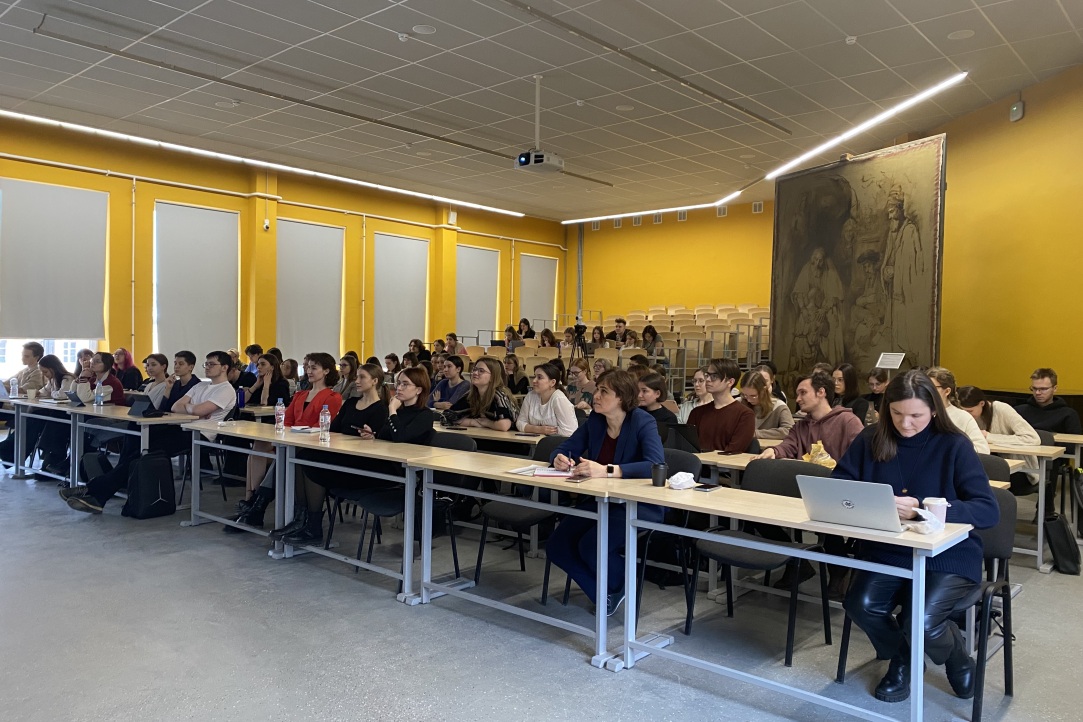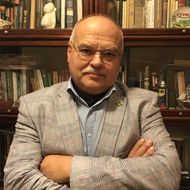- A
- A
- A
- ABC
- ABC
- ABC
- А
- А
- А
- А
- А
- HSE Campus in St. Petersburg
- Institute of Asian and African Studies
- Department of Public and Cultural Development in Asia and Africa
- News
- How to choose a specialization in Asian and African Studies
-
Department
Address: 123 Naberezhnaya Kanala Griboedova, room 322
190068 St Petersburg
8 (812) 644-59-11 *61289
Абрамова И. О., Amuhaya C. Ayuma, Degterev D. A. et al.
M.: National Review, 2023.
The Journal of Law and Politics (Hosei Riron), Law and Political Studies Association, Niigata, Japan. 2025. Vol. 55. No. 4. P. 131-176.

How to choose a specialization in Asian and African Studies

In her interview, the academic supervisor of the Bachelor's program “Asian and African Studies” Maria Soloshcheva noted that “the uniqueness of what is happening is that out of 22 universities where Asian and African Studies are taught, the system of choosing a specialization exists only in our program. Starting from the third year, students who studied the first two years in the basic departments also enroll in one of two specialized departments: the Department of Social and Cultural Development of Asia and Africa and the Department of International Relations and Political Processes of Asia and Africa”.
For students it is not easy to make the right choice, and it is hard to predict which specialization will be the best for them. That is why at special lectures and master classes for the 2nd year students the lecturers of the department introduce the specializations – “Philosophy and Religious Studies”, “Sociology”, “Cultural Studies and Art History” – in great detail.
In October and November students have already attended lectures by Evgenii Zelenev “Religions of Asia and Africa: Faith or Ideology”, Natalia Alferova “Orientalism in Art”, workshop “Sociological Research Methods for Dummies: from Interviews to Fieldwork” by Oksana Kakin. In December there will be a lecture “Philosophy in Contemporary Pop Culture” by Alena Korobochkina.
In January and February students are expected to attend lectures “Fun Sociology: Popular Culture of East Asia through the Prism of Sociology” (O. Kakin) and “What an Exhibition Curator Does” (A. Korolev), interesting master classes “What is Museology and What are the Specifics of the Museums of Eastern Countries” (N. Alferova) and “Chinese Education: Pros and Cons. Sociocultural Analysis of Asian Models of Education” (P. Rysakova), as well as a lecture ‘Study and Presentation of a Sacred Monument’ by colleagues from the State Museum of the History of Religion.
The special lectures and workshops will help students to choose their specialization and will become an important step on a way to future profession in the field of Asian and African studies.
Natalia Alferova
Associate Professor
Evgeny Zelenev
Professor
Oksana Kakin
Tutor
Alena Korobochkina
Tutor
Aleksandr Korolev
Associate Professor
Maria Soloshcheva
Associate Professor
